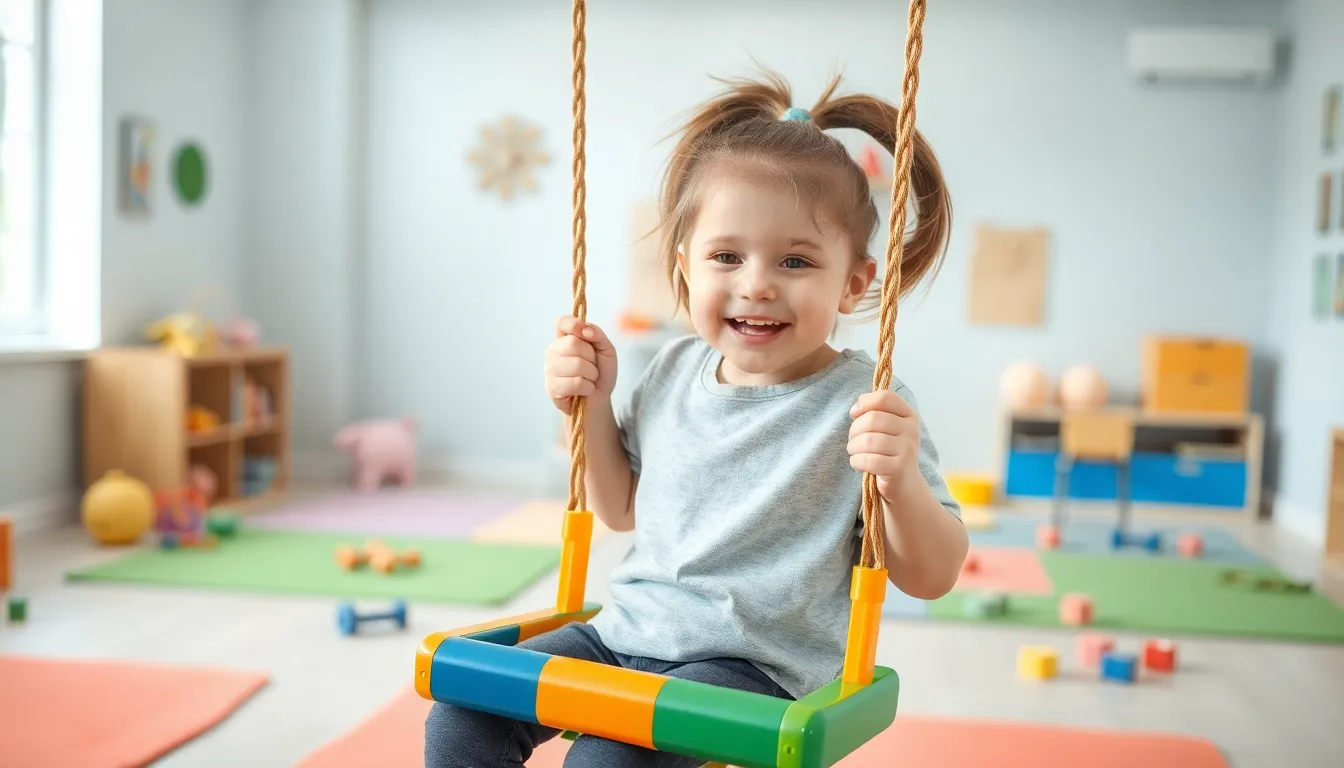As parents, watching a four-year-old navigate the world is like observing a tiny tornado of energy and curiosity. One moment they’re mastering the art of building a block tower, and the next, they’re asking profound questions about why the sky is blue. With all this excitement, it’s easy to wonder: is my little whirlwind ready for preschool?
Table of Contents
ToggleOverview of Preschool Skills Checklist for 4-Year-Olds
Four-year-olds possess a range of essential skills necessary for preschool readiness. Social skills emerge as significant elements, allowing children to interact positively with peers and adults. Cooperation during group activities indicates strong social development, while taking turns highlights their understanding of sharing.
Cognitive skills play a vital role in a child’s ability to learn and explore. Recognizing numbers and letters forms the basis for literacy and numeracy skills. Furthermore, problem-solving abilities become apparent as children engage in simple puzzles and games, showcasing their critical thinking capabilities.
Physical skills also contribute to preschool readiness. Fine motor skills develop through activities like coloring and cutting with safety scissors, enhancing hand-eye coordination. Gross motor skills improve as children navigate running, jumping, and climbing, preparing them for active play.
Language skills reflect a child’s communication abilities. Four-year-olds typically speak in full sentences and articulate their thoughts clearly. Engaging in conversations and asking questions displays their growing understanding of language and social cues.
Emotional skills are equally important. Recognizing and expressing emotions signals a child’s emotional intelligence, helping them manage feelings in various situations. Demonstrating empathy towards others is a crucial skill for building relationships and navigating social scenarios.
A comprehensive preschool skills checklist should encompass these areas: social, cognitive, physical, language, and emotional skills. By evaluating these skills, parents and educators can effectively assess a child’s readiness for preschool and facilitate a supportive learning environment.
Key Developmental Areas
Four-year-olds exhibit vibrant growth across various developmental domains. Understanding these key areas helps assess their readiness for preschool.
Cognitive Skills
Cognitive skills at this age include problem-solving abilities and critical thinking. Many children recognize letters and numbers, which shows early math and literacy understanding. Five or more shapes and colors often get easily identified. Memory plays a crucial role as they can recall stories and events. Activities like puzzles and counting games enhance these cognitive abilities, making learning both engaging and fun.
Social and Emotional Skills
Social skills encompass cooperation, sharing, and turn-taking. Children express feelings and empathize with peers, which strengthens relationships. Recognizing emotions in themselves and others becomes evident as they navigate social interactions. Conflicts may arise, yet resolution skills develop through guided play. Engaging in group activities fosters teamwork and builds a sense of belonging in preschool settings.
Language Skills
Language skills flourish as children improve vocabulary and articulation. Most four-year-olds form simple sentences and can carry on conversations. Questions frequently arise as curiosity drives their communication. Storytelling and read-aloud sessions enhance listening and comprehension abilities. Engaging in discussions about daily experiences enriches language development, promoting confident expression.
Physical Skills
Physical skills divide into fine and gross motor categories. Fine motor skills develop through activities like drawing, cutting, and manipulating small objects. Gross motor skills emerge through running, jumping, and climbing, which enhance coordination. Regular participation in playful activities boosts strength and agility. Engaging in sports or group games fosters teamwork and physical fitness for preschool preparation.
Creating a Preschool Skills Checklist
A preschool skills checklist for four-year-olds focuses on key developmental areas necessary for school readiness. This approach ensures parents and educators can evaluate essential skills effectively.
Essential Skills to Include
In creating a skills checklist, include social skills like sharing and cooperation. Cognitive skills such as letter and number recognition play a vital role. Physical skills should encompass fine motor tasks, including drawing, and gross motor activities like running. Language skills deserve attention; children should form simple sentences and engage in conversations. Emotional skills are important as well; children must recognize and express their feelings clearly. Integrating these essential skills provides a comprehensive overview of a child’s readiness for preschool.
Tips for Observation
Observe social interactions during playtime to gauge cooperation and teamwork. Pay attention to how children use language; listen for vocabulary expansion and sentence formation. Monitor their ability to recognize letters and numbers through playful activities. Note activities that involve fine and gross motor skills, such as building or running. Regularly engage with children during storytelling sessions; this increases comprehension and memory recall. Document observations consistently to track progress and recognize areas needing support.
Benefits of Using a Skills Checklist
Using a skills checklist enhances preschool readiness for four-year-olds. This tool helps track developmental milestones and ensures children acquire essential skills.
For Parents
Parents gain valuable insights through skills checklists. They can identify strengths and areas needing improvement in their child’s development. Frequent observation of social, cognitive, emotional, and physical skills fosters targeted support. Encouraging discussions about progress builds confidence in children. Documenting achievements enables parents to celebrate milestones, reinforcing positive behavior. Engaging with checklist items cultivates a deeper understanding of a child’s readiness for preschool.
For Educators
Educators benefit from skills checklists by creating tailored learning experiences. These checklists provide a clear framework for observing students during activities. Identifying students’ strengths aids in crafting individualized lesson plans. Monitoring progress throughout the year ensures that educators can adjust teaching strategies effectively. Engaging with parents through shared checklists fosters collaboration. Building a supportive classroom environment thrives when everyone understands the developmental goals for each child.
Understanding the preschool skills checklist for four-year-olds is essential for parents and educators alike. It offers a roadmap for assessing a child’s readiness for preschool and highlights key developmental areas. By focusing on social, cognitive, physical, language, and emotional skills, caregivers can better support their child’s growth and learning journey.
Using these checklists not only identifies strengths but also areas for improvement. This proactive approach fosters a collaborative environment where parents and educators work together to nurture each child’s unique abilities. Ultimately, being equipped with this knowledge ensures that children are well-prepared to embark on their preschool adventure, setting a strong foundation for their future learning experiences.





